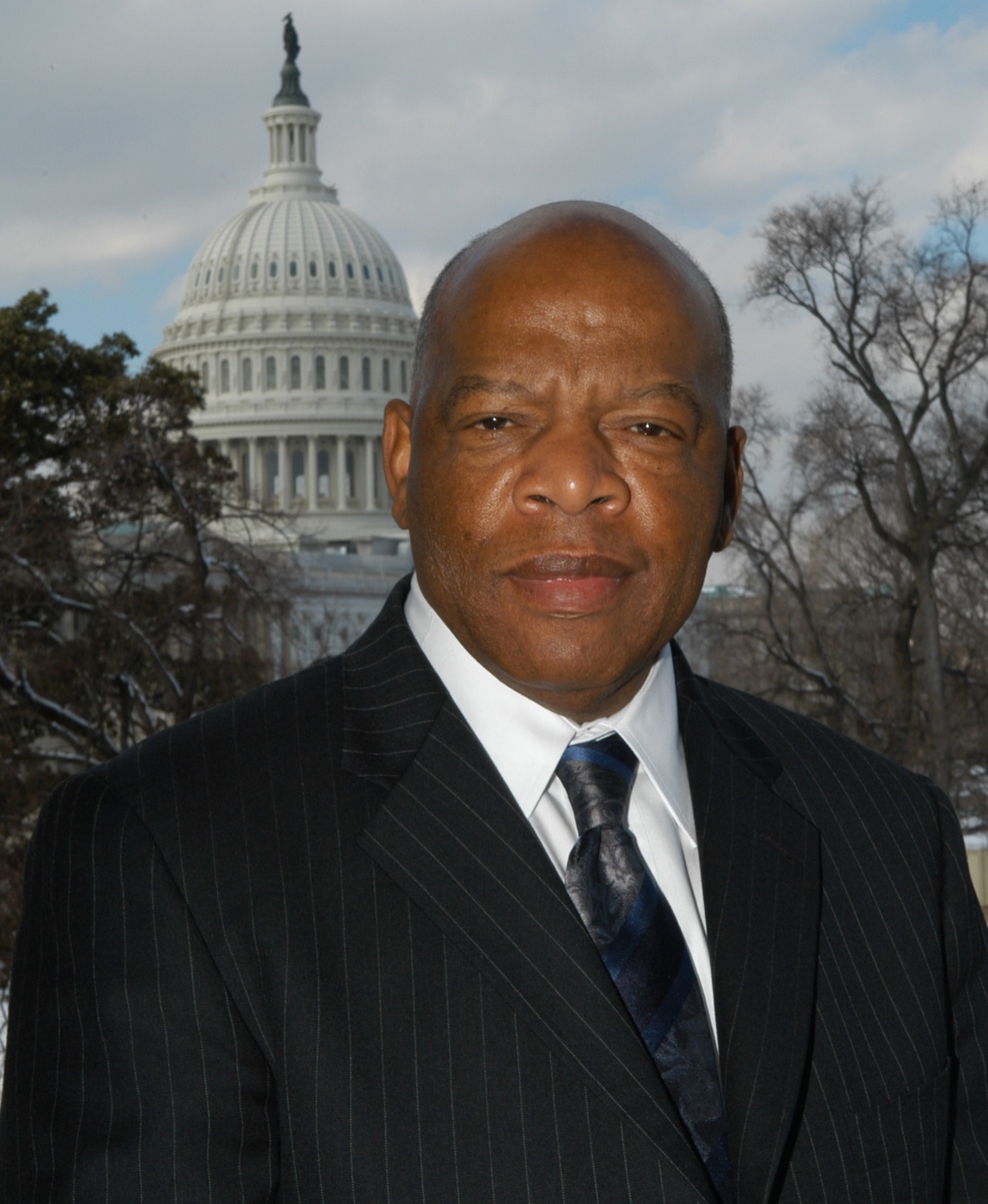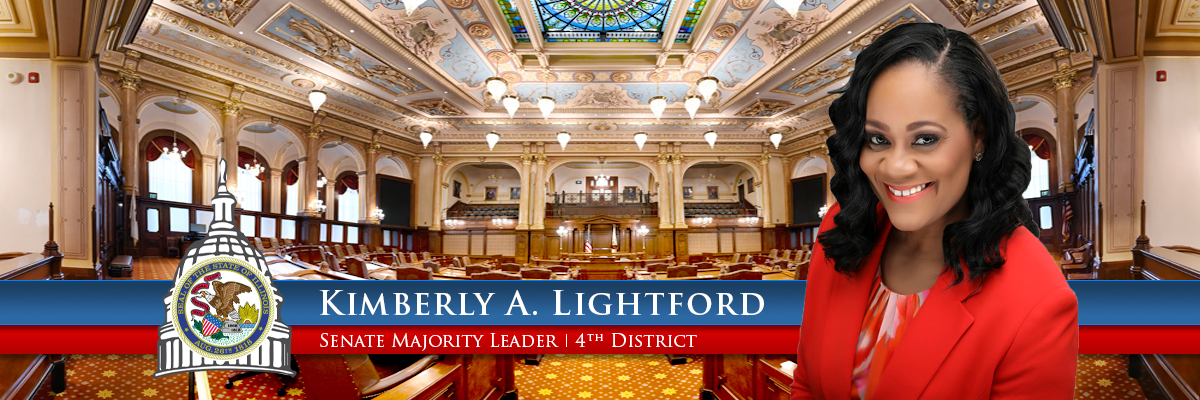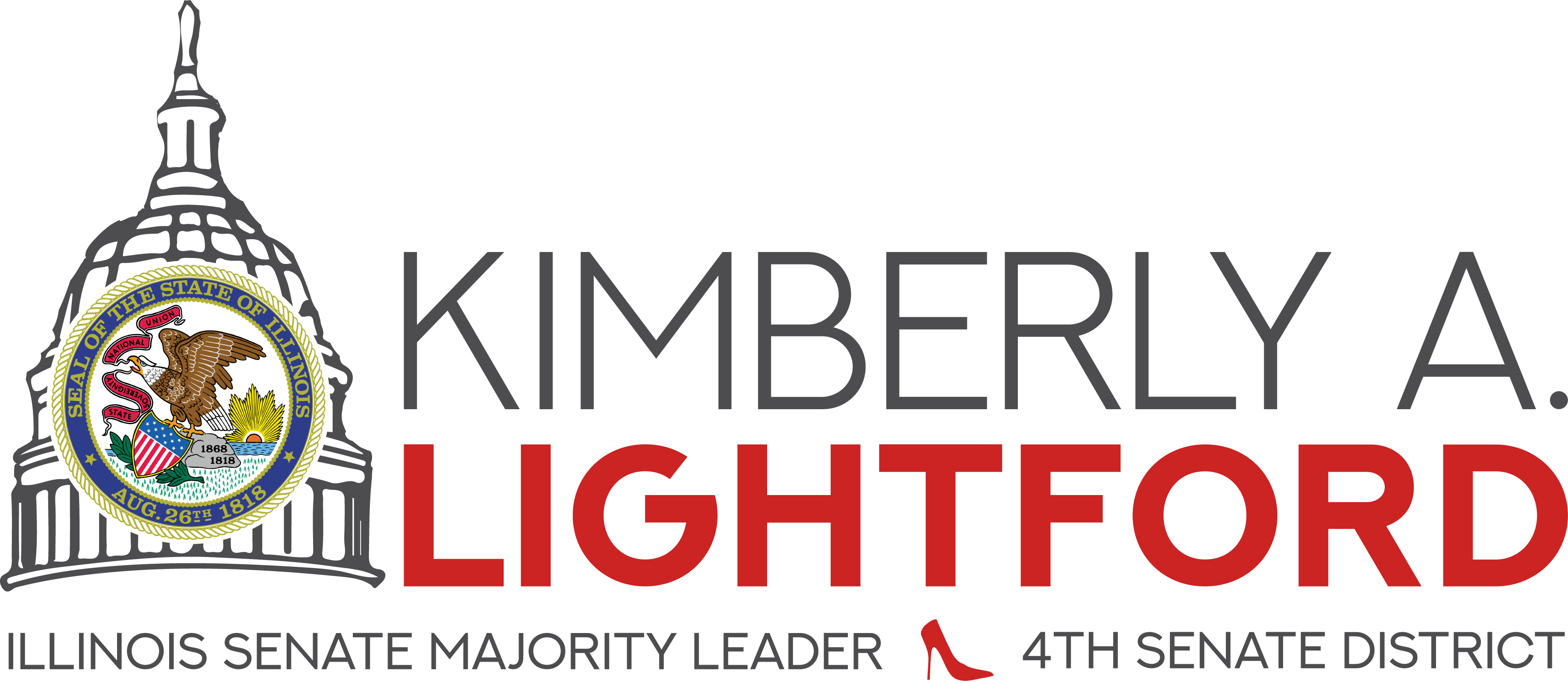- Details
- Category: News
 CHICAGO – Senate Majority Leader Kimberly A. Lightford (D-Maywood) released the following statement in response to the loss of Congressman John Lewis Friday night.
CHICAGO – Senate Majority Leader Kimberly A. Lightford (D-Maywood) released the following statement in response to the loss of Congressman John Lewis Friday night.
“We lost a giant in the fight for civil rights. Congressman John Lewis unapologetically and fiercely fought for the rights of Black people and every marginalized population in our country. He carried on the dream that Dr. Martin Luther King first manifested in 1963 to his dying day, and we have to continue to carry that vision until it is reality.
“Have no doubt that we are in a movement that has the power to finally turn the tide, and if we each approach it with an ounce of the courage Congressman Lewis had, we will change our country.
“Last night, the Chicago Police department took actions against protestors that are much too reminiscent of the same actions that were taken against Congressman Lewis in his youth. We cannot be public servants if our interest is not in serving the public, and we cannot treat monuments better than we treat people.”
- Details
- Category: News
 MAYWOOD – With a heavy heart, Senate Majority Leader Kimberly A. Lightford (D-Maywood) celebrates the life of her former 4th Senate District staff and long-time family friend, Joyce Ann Runnels Simmons, who passed away on July 7. Lightford released the following statement to commemorate her life after she was laid to rest on Tuesday:
MAYWOOD – With a heavy heart, Senate Majority Leader Kimberly A. Lightford (D-Maywood) celebrates the life of her former 4th Senate District staff and long-time family friend, Joyce Ann Runnels Simmons, who passed away on July 7. Lightford released the following statement to commemorate her life after she was laid to rest on Tuesday:
“Ms. Joyce moved next door when I was 7 years old, and our families have continued to grow a bond since then. She was like an aunt to me, and she supported me long before I had any idea where my life would go. Her ability to make everyone she encountered feel loved will be remembered by all of us who had the honor of knowing her.
“When I had the opportunity to hire her in my district office, I was overjoyed to have her caring presence there and give my constituents the opportunity to experience her loving nature. She was dedicated to the 4th Senate District as a staff person and later as a member of my 4th District Women’s Committee.
“Our family is deeply saddened by the loss of Ms. Joyce, but we find peace in the memories, the way she made us feel and her unwavering faith in God. My condolences go out to her husband, Charles, and her three children, Charles Jr., Derrick and LaShaun, and the rest of her beautiful family.”
- Details
- Category: News
 CHICAGO – The Illinois State Board of Education received $569 million through the federal Elementary and Secondary School Emergency Relief (ESSER) Fund, and Senate Majority Leader Kimberly A. Lightford (D-Maywood) is encouraging districts to apply.
CHICAGO – The Illinois State Board of Education received $569 million through the federal Elementary and Secondary School Emergency Relief (ESSER) Fund, and Senate Majority Leader Kimberly A. Lightford (D-Maywood) is encouraging districts to apply.
In total, $512 million allocated by ISBE will go directly to Illinois school districts. The funds will support their local response to the COVID-19 pandemic while also preparing schools for unique challenges of the upcoming school year.
“Children in disproportionate communities have been at an unfair disadvantage during the pandemic,” Lightford said, “Being unable to continue your education without the adequate tools should not be a punishment. Schools should take advantage of these grants to make sure children are staying ahead.”
- Details
- Category: News

“Youth employment is a continuing issue that has put our young people in even more difficult situations because of the COVID-19 pandemic,” Lightford said. “That is why it is important that we are investing these dollars in communities that need the support the most.”
Lightford worked with the Department of Human Services to ensure the Illinois Youth Investment Program grants are targeted to provide jobs and support for people ages 16 to 24 in some of the most underserved communities across the state.
The Illinois Youth Investment Program, administered by DHS, supports at-risk youth who are seeking long-term, career employment. Providers interested in serving young people in their area can apply for grants through Aug. 3 online at DHS’ website.
“Our youth play significant roles in our society, and providing job opportunities will ensure their success,” Lightford said. “There are young people helping support their household, maintaining their own households and working toward their future. We have a responsibility to not let their ambition go to waste, and that is why I encourage service providers to engage in this work.”
Grants are awarded to providers who can assist at-risk youth with short-term, long-term and industry-specific career development opportunities. In addition to employment support, IYIP also provides participants with support services for their physical, emotional, social and mental health needs. Questions about IYIP and other DHS grants can be answered online or by calling 800-843-6154.
More Articles …
- Lightford commends Pritzker for seeking out Kristin Richards to lead IDES
- Lightford criticizes U.S. Supreme Court ruling limiting access to birth control
- Lightford: Chicago gun violence is a symptom of a larger problem
- Lightford: Sgt. Esqueda should not be punished for seeking justice for Eric Lurry
Page 38 of 129







